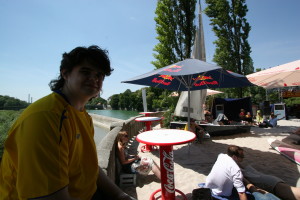GUADEC
Tomorrow I fly to Vilanova, near Barcelona, to attend the GNOME conference. Afterwards, I’ll stay in Barcelona over the weekend for some touristing.
I’m looking forward to GUADEC as a kind of holiday where I can spend the time just doing things that I find interesting. I’ve had the guilty pleasure of not helping at all with the organisation, though I’ve been on the mailing lists, so I’m more than usually grateful to Quim Gil and his team for their fantastic work, and for the stress that they will probably endure/enjoy for the week.
I know that they don’t speak Spanish in Catalonia, but there will be people from other parts of Spain. I would really love to practice some of the simple Spanish that I’ve learnt. I’m now up to lesson 17 of part 2 of Pimsleur’s Spanish, and I need to see if I’ve really learnt anything.
Contributing to Glom
At GUADEC, I’ll try to recruit contributors for Glom. So far, I’ve not had success getting people involved, though I knew there’d be a delay while it even got into the distributions for testing by users. At least life is easy now with Ubuntu Dapper at least – you can even build Glom without using jhbuild.
To make contribution easier, I’ll do some more reorganisation of the source code, and some simple developer documentation. In the meantime, I marked the easier Glom tasks, and added some more clues about how to implement them. Some of these tasks are appropriate for people just getting started with C++ or gtkmm. Interested people should find me at GUADEC.
If you have a laptop with you, I’ll take the time to help you setup Glom and setup your development environment, and I’ll show you how to make patches. If you don’t have your laptop, I’ll show you stuff on mine. I’ll introduce you the code and show you how to get started on one of the simple tasks, based on your current experience. I’ll try to do this online too, but a week in the GNOME Village is a real opportunity to do this properly in person. I’ll do this in English or German.
I also added 3 more examples in CVS, and put some screenshots of the examples online. Two of them (Music Collection and Project Manager) are really simple, but Film Production Manager is quite large and involved and is based on a real situation.





